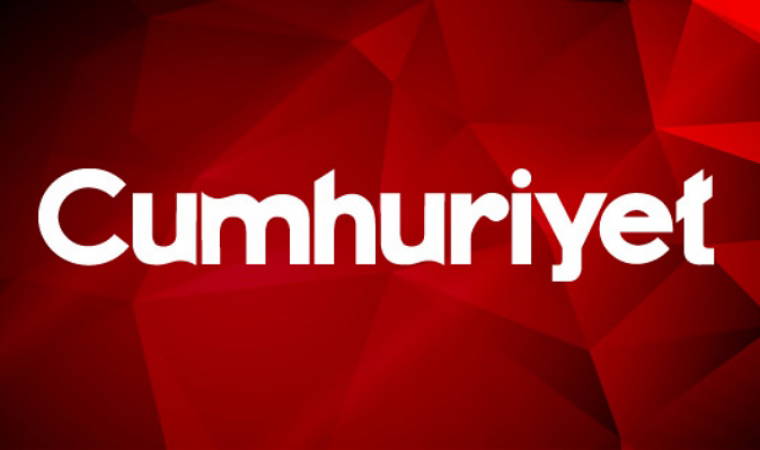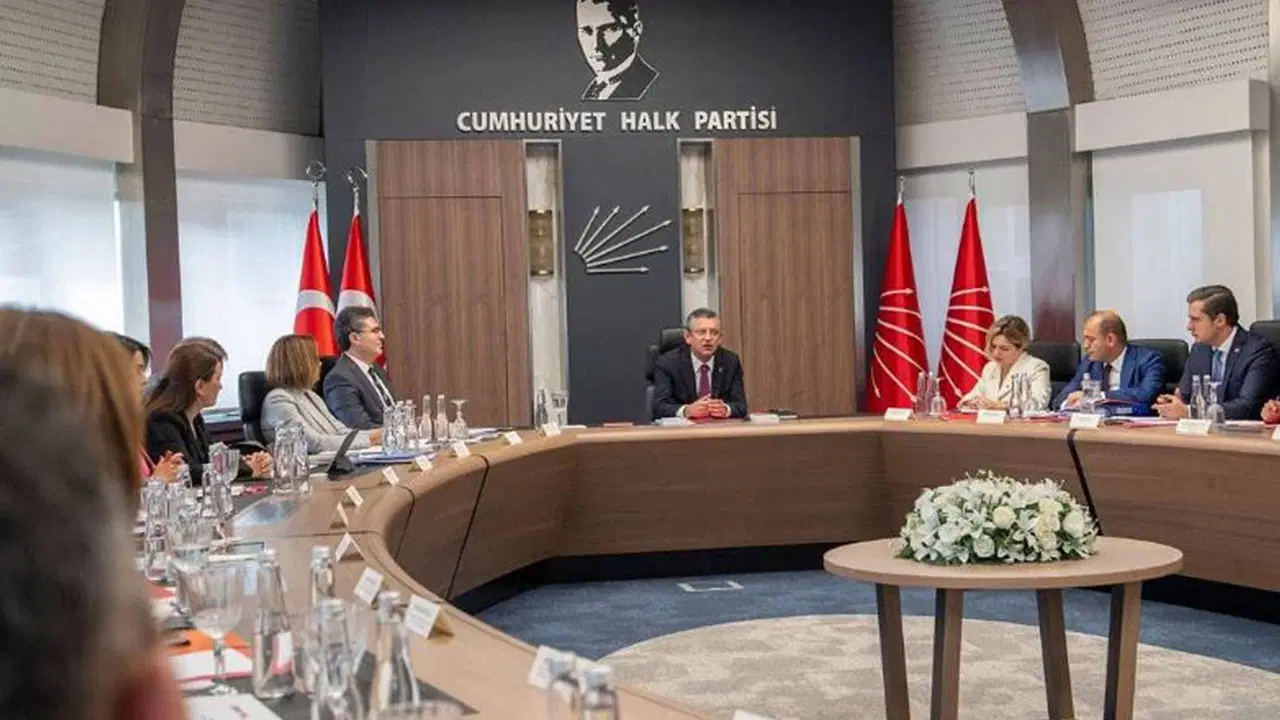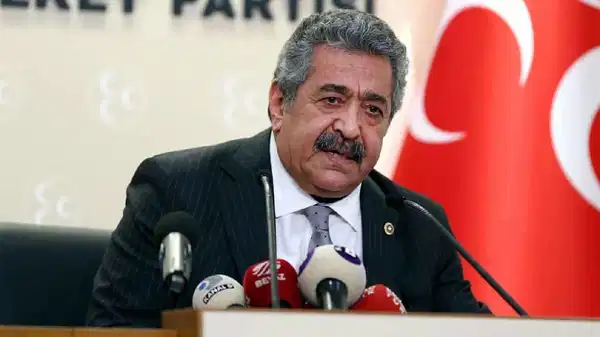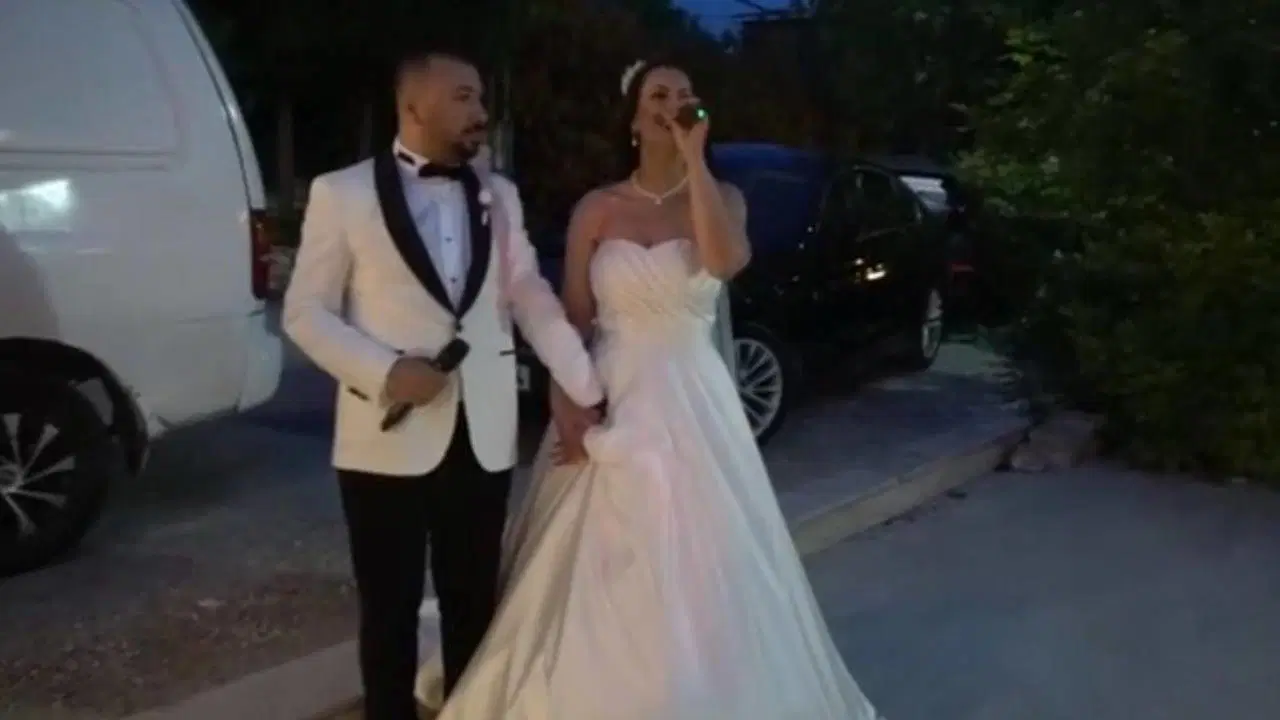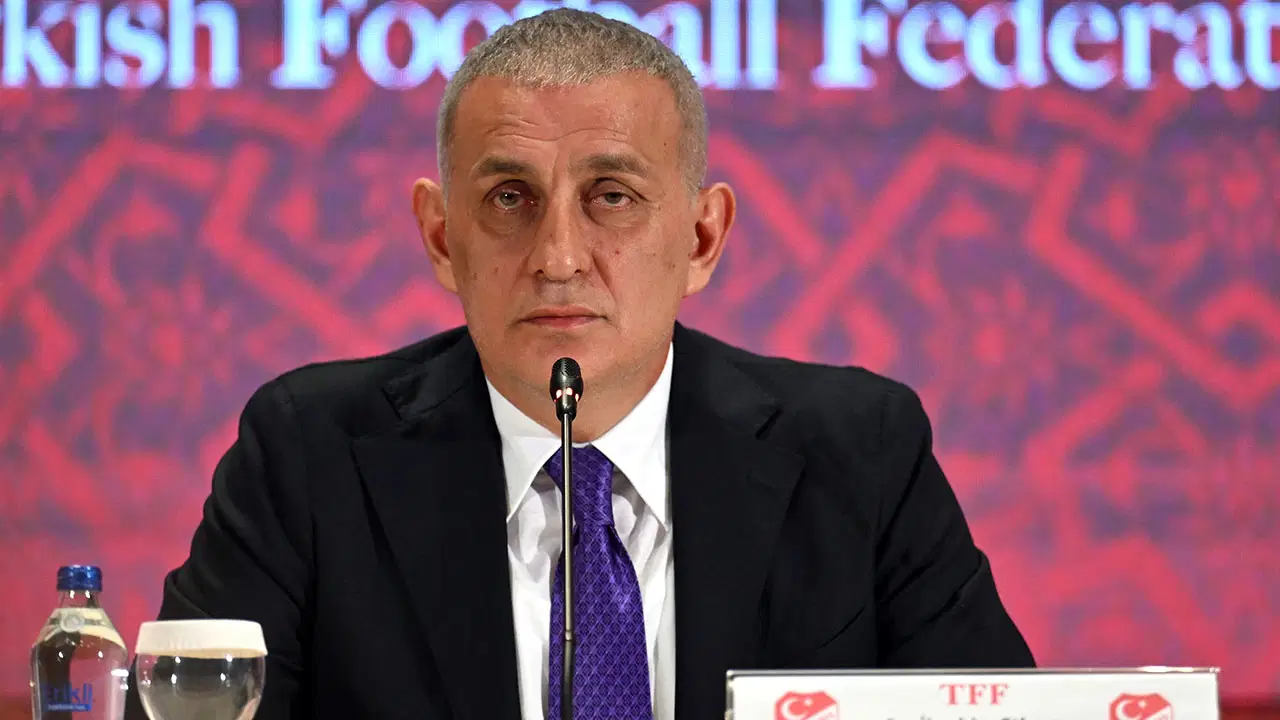KEMAL GÖKTAŞ
ANAR CEO İbrahim Uslu says, ‘The “No” block’s performance was higher.’ With SONAR CEO Hakan Bayrakçı saying, ‘The threat of a single person impacted on voters and I expect “No” by 51 odd per cent,’Murat Gezici commented, ‘The research we have conducted puts “Yes” at 53.3% and “No” at 46.7%.’
Turkey will make its choice in one week’s time over the constitutional amendment that aims to make authoritarianism permanent. The vast majority of the polls show ‘Yes’ and ‘No’ votes to be neck and neck and that the undecided will determine the result. Even if they were found wanting in the 1 November elections, all eyes are on the polls. This week, I made a break with tradition and, instead of having one guest, I assessed the referendum campaign along with three leading pollsters.
‘Had it not been for 15 July, ‘No’ would be in the 60-65% range’
GEZİCİ RESEARCH CEO MURAT GEZİCİ:
- Do you have a prediction as to the referendum result?
The research we have conducted puts “Yes” at 53.3% and “No” at 46.7%.. In fact, the number of ‘Yes’ supporters is more or less the same, but non-voters appear to be at a pretty high level. Nationalism has increased in Turkey in the aftermath of 15 July. The opposition has been inept at consolidating society. Centre-right voters appear to be at 70%. The body of voters who will determine the result of the referendum will be the body of centre-right voters who vote for the AKP and MHP. The opposition has not managed to develop an approach that mitigates the concerns of the centre-right electorate. Of the MHP base, 55% voice support for ‘Yes,’ while 15% of HDP voters do. There is a body of non-voters amounting to 15-17%. These voters are living out a learned hopelessness and the opposition has not managed to offer hope to these voters. The winning of every election for fourteen years by the ruling AKP party, Erdoğan’s charisma and a decline in their trust for the opposition leaders leaves them saying, hopeless of bringing the latter into power, ‘I cannot change anything with one vote.’ Of non-voters, 55.9% say, ‘I cannot change anything with one vote.’ Young people make up 44% of the non-voters. As the educational, cultural and income level of these young people falls, there is an increase in support for the ballot box and support for liberal democracy. As the educational, cultural and income level rises, trust in the ballot box and liberal democracy declines. The people are not afraid of Erdoğan. On the contrary, among the majority of the population, trust in Erdoğan has risen since 15 July. We see that they have started to perceive of him as being a natural leader. Had it not been for 15 July, ‘No’ would be in the 60-65% range. Prior to 15 July, support for the executive presidency was in the region of 35, at most 37. Most recently, the voters have seemingly supported ‘Yes’ for the country’s survival and for the country to have a better economy. In particular, the MHP’s rhetoric of, ‘Yes for both the state and the people’ appears to have been effective. Rhetoric from members of the ruling party of a confrontation between cross and crescent and a crusade lining up against our country, and images of the Pope and European leaders convening, has been especially influential. Erdoğan also talks about the services rendered under fourteen years of AKP rule. As age rises, so does acceptance of this propaganda. In fact, undecidedness is greater from middle age upward. This also inclines these voters in the direction of ‘Yes’. The percentage of voters having knowledge of the amendment being voted on in the referendum is 55. Forty-five per cent do not know. Of AKP supporters, 80% know nothing at all about the content of the referendum. There is a high percentage who are voting because of Erdoğan’s charisma, saying, ‘If he’s doing it, he knows what he’s about.’
Erdoğan reborn
- Who has been the star of the campaign, in your view?
Erdoğan has been reborn, because he has made peace with the MHP and the MHP base. Over his fourteen-year rule a gap has emerged between him and Turkish nationalists and ultranationalists. He has closed this. The winner of the referendum will be Erdoğan. Even if ‘No’ prevails he will be the winner because nationalists appear to be voting for him. He is getting the support of 55% of them.
- How do you assess the ‘Yes’ campaign?
At the initial stages, it resorted to strident, polarising, discriminatory rhetoric. This campaign is not being waged with 80% of society in mind, but the 20% that is undecided. Both sides have been inept at encouraging these undecided people to vote. Of non-voters, 75% tend towards ‘No’ and 25% towards ‘Yes’.
- How do you assess the ‘No’ campaign?
A campaign has been waged that did not hit home with the centre right. The ‘No’ side has been unable to address this body of voter’s concerns and fears. Where the ‘No’ campaign arguably succeeded was in getting the content of the amendment across. But, in addition to this, they needed to revisit the ruling party’s mistakes over the fourteen-year period. The ruling party recalled its services over fourteen years, but the opposition refrained from reminding us of the errors. It could have turned the referendum into a vote of confidence. The opposition was incapable of doing this.
- Has there been a development that caused a significant change in the vote over the campaign?
Erdoğan’s call for voters to unite under a single roof for the country’s survival following the crisis that erupted with the West was most effective. The commonest reason for ‘Yes’ among MHP voters is the rhetoric over the country’s survival. They appear to be supporting ‘Yes’, not for reasons of ideology, but because they perceive this to be ‘love for the country.’
- How did the Erdoğan factor play out?
The only poster depicting a leader in the ‘Yes’ and ‘No’ campaigns was the one with Erdoğan. There was no photograph of the leaders on ‘No’ posters. The Erdoğan factor and his charisma was used in the ‘Yes’ campaign. He was put across along with the ‘Yes’ logos and a message was given to voters. In a sense, they gained a boost from using Erdoğan’s success on the evening of 15 July as PR.
‘The threat of a single person impacted on voters and “No” is in the lead’
SONAR CEO HAKAN BAYRAKÇI:
- Do you have a prediction as to the referendum result?
I expect ‘No’ by 51 odd per cent. This is what has emerged in the reports published by Sonar. There is a 1.7% margin of error in this. This margin of error must work entirely in favour of ‘Yes’ for ‘Yes’ to win. At best, ‘Yes’ may prevail with 50.3%. I do not want to hide behind the claim that there is a margin of error and it could also end in favour of ‘Yes.’ This poll is only twenty days’ old, but I will say that, if you repeat it every five days and have it done by ten different companies, the raw result will put ‘Yes’ in front by a few points. There is a group of 12-15% that does not proffer an opinion, saying, ‘I am undecided, I have no idea, no reply.’ Our professional practice is to distribute these proportionately. Let us say that the result is 44% ‘Yes’ and 42% ‘No.’ If we make a proportional distribution, the result will be 53% ‘Yes’ and 47% ‘No’ in mathematical terms. Why am I not doing this mathematically? I do not personally want to repeat our failure in the 1 November elections. I am not making a proportional distribution, because the group that does not speak, or even a portion of those who do, do not speak because they are reluctant. I have listened in on many of the polls conducted over the phone. Think, there are around two and a half million civil servants. None of them can say ‘No’ in the poll. In a poll conducted with 5,000 people, there have to be 250 civil servants. Just think, you do not get a ‘No’ from any of them for some reason. These guys cannot risk doing this. I see things as being neck and neck. ‘No’ could end up at 49.9%. I will be astonished if it makes it into the 55% region. My forty-year experience says this will be a very close finish.
Single person slogan
- Who do you think the star of the campaign was?
Tayyip Erdoğan, as ever. Erdoğan is a politician who makes people sit up and listen. But, I also liked Kemal Kılıçdaroğlu in this campaign. He was really successful in terms of both concept and style. Opposition voters cannot stand the sight of certain AKP people, but many of them have a soft spot for Binali Yıldırım. He is a sincere, genial politician.
- How do you assess the ‘Yes’ campaign?
They used the most correct goals and concepts that were available to them. I actually said six months ago when the referendum was first being mooted that the ruling party would associate the ‘No’ camp with the PKK and FETO. They made all the right moves. Why, in spite of this, is ‘No’ prevailing? Even if the ‘No’ campaigners had been unsuccessful, one of their slogans had a great impact on people: ‘Turkey must not be surrendered to a single person.’ This pronouncement was a slogan that was capable of dealing a knockout blow to all of the countering concepts and advertising and arousing people’s concern. This was the opposition’s greatest advantage. Ninety per cent of MHP supporters will vote ‘No’. Even those in the MHP ranks who support headquarters and are organised are coming out in favour of ‘No’.
- How do you assess the ‘No’ campaign?
Their events were not great in number. The media did not cover them, either. I considered the HDP’s plan to very successful. Had the HDP waged an active ‘No’ campaign, ‘Yes’ would have got 57%. Whatever side the HDP was on, it was doomed to lose. What the HDP had to do was to take charge of its own flock and it did so. Ninety per cent of HDP voters will vote ‘No.’
Talk of tipping into the sea went awry
- Has there been a development that caused a significant change in the vote over the campaign?
Talk of a ‘controlled coup’ was detrimental to the ‘No’ campaigners. I in common with the majority of voters think there was a real coup. This was an incorrect thing to come out with but, thank God, it died down quickly. Talk of tipping people into the sea caused similar harm. But, far more than any of this, the thing that will influence voters is the state of the economy. Tourism is very important in this regard The crisis with the Netherlands and Germany also worries voters because it will have negative effects in economic terms.
- How did the Tayyip Erdoğan factor play out?
The Tayyip Erdoğan factor always plays out positively on voters. The number one signatory behind the party you call the AKP being in power for fifteen years is Erdoğan. Had it not been for Erdoğan’s style, manner and talents, there would have been neither such a government, such an AKP nor such a fifteen years. If Erdoğan had not spoken in the campaign, ‘No’ could have increased its share further.
‘The “No” side’s performance was high.’
ANAR CEO İBRAHİM USLU:
- Do you have a prediction as to the referendum result?
We have conducted regular polls from the outset. We will get the results of the last poll we did at the end of March-beginning of April next week. Before that, we have a poll from the beginning of March. We saw in that one that ‘Yes’ and ‘No’ were very close together. The difference between was of no statistical significance. The undecided had fallen to around 10%. However, we have been through many events since the start of March. We will see the effect of this in our study that will end at the start of the week.
- Who do you think the star of the campaign was?
As opposed to other campaigns, no star emerged from this campaign. Everyone did what was expected of them. There is just one thing: the ‘No’ block put in a performance that exceeded their individual performances.
- How do you assess the ‘Yes’ campaign?
It is hard to speak of the MHP having conducted a campaign apart from a few rallies. This, in particular, is what is apparent if we compare it to the performance it exhibited in the previous referendum. The AKP’s first success was in raising popular awareness of the proposed constitutional amendment, which stood at 15% when we measured it at the start of January, to around 85%. It raised the level of awareness. This was a very significant achievement because the proposal was a technical text. Secondly, it succeeded in consolidating the vast majority of the electorate around the highly controversial constitutional amendment. We saw this in our polls at the start of March. So, the AK Party waged its campaign in line with their intentions.
Positive language was effective
- How do you assess the ‘No’ campaign?
The ‘No’ block’s performance was high. With the total vote of the two, i.e. the CHP and HDP, amounting to 35%, support for ‘No’ at the start of March was around 50%. It was a great innovation for them to depart from the negative campaigning language to which we have been accustomed until now. Actually, the HDP used positive language on 7 June, but the CHP has used such language for the first time. It was successful, up until the controversy it sparked off in recent days. However, comments of the past few days about things like a ‘controlled coup’ and ‘tipping into the sea’ have been a complete reversal of what it has been doing until now. I think that such pronouncements are wrong in terms of campaign consistency. Apart from the two comments, I saw no mistake. The campaign went forward under a correct strategy as conceived at the outset. The target group was determined very well. They planned well which target group they would reach out to, and how. They have embarked on a final week under campaign discipline. They have not entered into polemics, but their comments of the past week have created a situation that erases memory of the campaign so far. And this is incomprehensible.
The Europe crisis was unfortunate
- Has there been a development that caused a significant change in the vote over the campaign?
Developments between January and March have not tipped the balance in favour of either ‘Yes’ or ‘No.’ The tensions experienced with Europe were unfortunate developments. We will see what impact this will have on the outcome in the latest poll, but it has led to a departure from campaign discipline and a breakdown of concentration. For several weeks, the country dropped the constitution and spoke about the ongoing tension with Europe. Campaign consistency was high and it had the effect of seemingly dispelling the focus point in a campaign having a very high informational dimension. We will see how this has affected the vote.
- Has the ruling party’s rhetoric that ‘FETO and the PKK are on the “No” side’ influenced the vote?
It had not done so until the start of March. Such language was not being used in that period, either. Voters have either ignored or tolerated statements made for campaigning purposes. They know that these things are said for campaigning purposes.
- How did the Erdoğan factor play out?
I do not share the view that Erdoğan’s public appearances negatively influenced the vote on 7 June. What would have happened if the president had not campaigned in public over the referendum? This would be a hypothetical exercise. It is very hard to appraise this. There was a distribution of votes before campaigning started and this was 50%-50%. The overall performance of the campaigns has led to a retention of the averages. I do not think it did any harm, but until the start of March it has not had the hoped-for effect. One factor that has to be taken into consideration is the small number of rallies until the beginning of March. The campaign was not yet in swing. The environment was not conducive for public appearances before then, either, with winter conditions prevailing. We will see its effect in our new poll.











